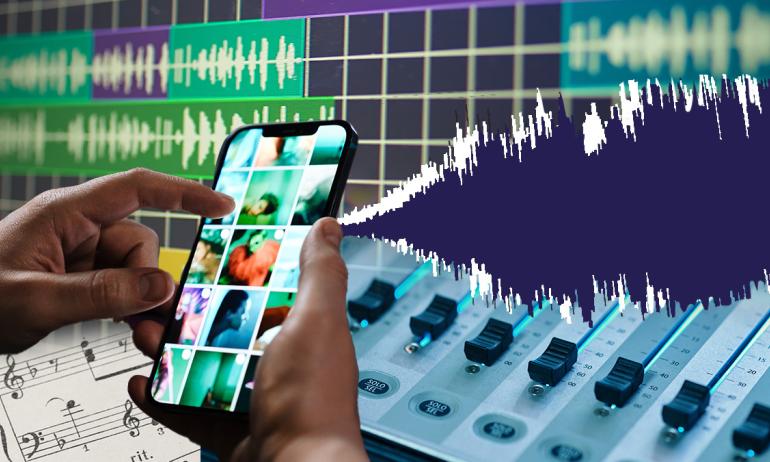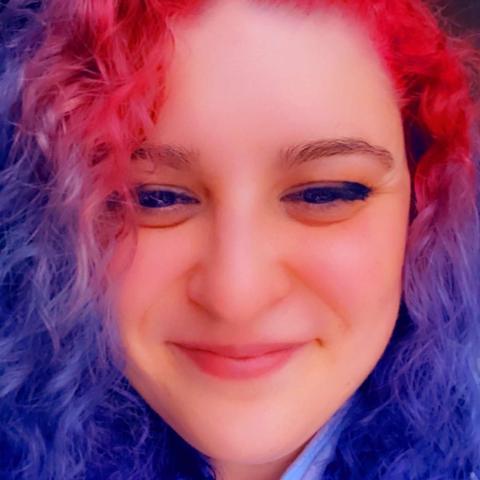Musical Theater Summer Program Gives Students a Sense of Agency

Joy Lamberton Arcolano
Joy Lamberton Arcolano loves her Youth Musical Theater summer program. For one or two weeks each summer, students ages 11 to 14 sing, dance, and act, of course, but also develop what she calls their “instruments of self” in service to greater personal agency in everything they do.
An award-winning actor and voice actor, Arcolano brings decades of experience in theater education and a deep conviction to her program. With a master’s degree from Harvard in arts in education, she developed a curriculum that challenges students to be collaborative artists and meets middle schoolers where they are developmentally.
What makes the Youth Musical Theater program unique?
What we are trying to do is have each person grow in their understanding of their instrument of self. How do they play themselves as an instrument to share a story with an audience? We do instrument-of-self work every day. And then we also incorporate that with the nuts and bolts of a high-level arts education camp. We have some of the best teachers in the country. Isaac Leaverton is amazing, and Kristen Katsimpas is our choreographer on staff. They're both Boston Conservatory faculty and they're top of the game.
You are cognizant of the nature of theater being a group of individuals within an ensemble.
The average theater program goes, "Let's put on a show." Yes, of course. But I’m also very specifically thinking about the development of the individual artist within the collective. I'm holding a space for the whole group, but I am more interested that every single person gains some skills and some agency over the course of the time that I spend with them than there being a fancy show at the end.
Could you describe what the practice of "teaching artistry" means for you?
A teaching artist is not an artist who happens to go teach and not a teacher who happens to do art. The art that I am making is a collaborative endeavor with the learners that I'm working with. I've brought that into the Youth Musical Theater program. It’s different than other theater programs, and the feedback has been overwhelmingly positive.
There is a mental health awareness component to your curriculum. Can you talk about that?
Middle school is a big, transitional time. It's the separation from the parent and family community into valuing the peer group a little bit more. Youth Musical Theater is a place where the peer group is being shaped around “how do we develop?” and “how do we celebrate what we already know?”
Which levels of experience can students expect to find in their fellow campers?
Our youngest are as young as 11, and some of them are just kind of trying musical theater for the first time. Other kids have been on national tours.
Is it challenging to have such a range of experience in the students?
The more experienced students bring this really lovely level of dedication and professionalism that they model for the other students. And they are in with a group of people that are just excited to run around and sing and dance because this is cool and new—that level of enthusiasm is infectious and reminds some of those older kids why they loved it in the first place.
There is also an age differential at work. We use proximal development to our advantage.
Our goal throughout the week is that everybody gets a line of solo. We do that with 60 kids. It's definitely not a place where we are oriented around "That one person is so amazing." Instead it’s "Wow, look at this ensemble." That's a really important part of why I think mixed skill groups are really, really useful.
What is feedback you hear from alumni of the program?
That the students feel included and they feel heard.
We educate all of the faculty and staff about judgmental language, and that means we do not offer empty praise either. We work towards observation-based language only when providing feedback.
A huge thing when I direct shows with students: I don't block anything. A lot of directors come in and say, "Here's all the blocking. This is where you stand. Do this, do this, do this." That's the experience that my students are coming in with. It's that they're puppets. This program is my love letter to the death of puppetry. I really would like the students to actually be collaborating artists.
To be collaborating artists, they both need to develop their understanding of their instrument of self so that they're making informed decisions about how they can or cannot be in a space and whether they can speak or sing or meet the note. But then I also am giving them this space where they understand what a collaborative relationship is like.
What can a student expect to take away from a week in Youth Musical Theater?
Confidence in the agency they currently have. And new friendships.




